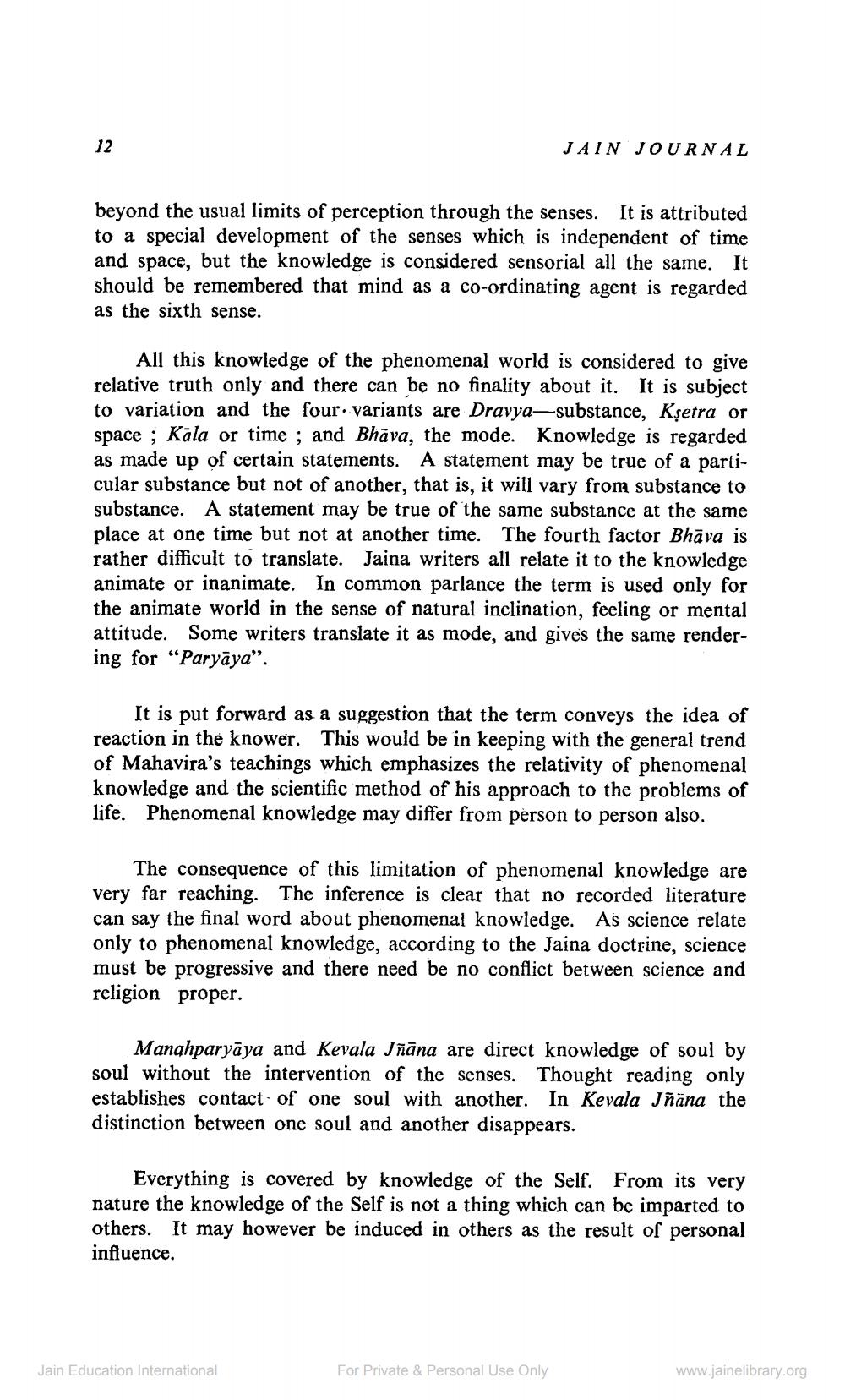________________
12
JAIN JOURNAL
beyond the usual limits of perception through the senses. It is attributed
special development of the senses which is independent of time and space, but the knowledge is considered sensorial all the same. It should be remembered that mind as a co-ordinating agent is regarded as the sixth sense.
All this knowledge of the phenomenal world is considered to give relative truth only and there can be no finality about it. It is subject to variation and the four. variants are Dravya-substance, Ksetra or space ; Kāla or time ; and Bhāva, the mode. Knowledge is regarded as made up of certain statements. A statement may be true of a particular substance but not of another, that is, it will vary from substance to substance. A statement may be true of the same substance at the same place at one time but not at another time. The fourth factor Bhāva is rather difficult to translate. Jaina writers all relate it to the knowledge animate or inanimate. In common parlance the term is used only for the animate world in the sense of natural inclination, feeling or mental attitude. Some writers translate it as mode, and gives the same rendering for "Paryāya".
It is put forward as a suggestion that the term conveys the idea of reaction in the knower. This would be in keeping with the general trend of Mahavira's teachings which emphasizes the relativity of phenomenal knowledge and the scientific method of his approach to the problems of life. Phenomenal knowledge may differ from person to person also.
The consequence of this limitation of phenomenal knowledge are very far reaching. The inference is clear that no recorded literature can say the final word about phenomenal knowledge. As science relate only to phenomenal knowledge, according to the Jaina doctrine, science must be progressive and there need be no conflict between science and religion proper.
Manahparyāya and Kevala Jñāna are direct knowledge of soul by ul without the intervention of the senses. Thought reading only establishes contact of one soul with another. In Kevala Jñana the distinction between one soul and another disappears.
Everything is covered by knowledge of the Self. From its very nature the knowledge of the Self is not a thing which can be imparted to others. It may however be induced in others as the result of personal influence.
Jain Education International
For Private & Personal Use Only
www.jainelibrary.org




